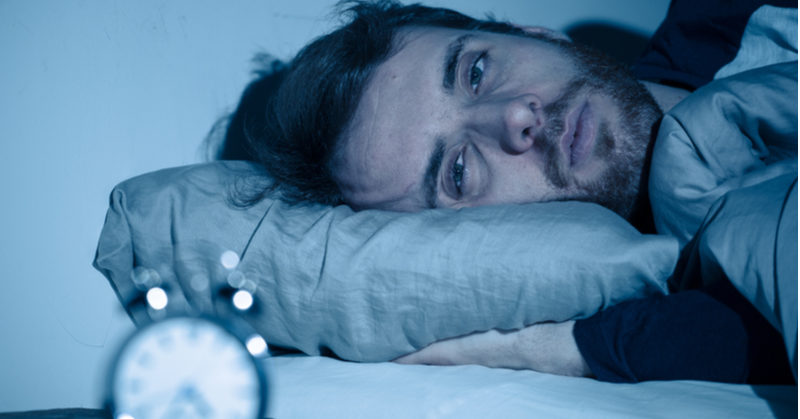There are so many stereotypes when it comes to the idea of intelligence. For instance if you have a dirty room, a dirtier mouth, or can never seem to get up from bed in “good time” because of your late nights, there have probably been those around who associate some or all of those traits with laziness and low intelligence. It turns out, you’re in luck, because those three seemingly undesirable qualities might actually be signs of intelligence.
Profanity is Not a Sign of Low I.Q.

‘People who swear all the time are just too dumb to think of a better word to use!’
Chances are, whether you swear like a sailor or save cursing for when you stub your toe or get cut off on the highway, you’ve heard a version of that statement before. However, there is some evidence that shows that this may not be the case.
Turns out swear word fluency is correlated to general word fluency, and those who can sputter out a greater number of profanities do not suffer from language deficicies, or lack of vocabulary [1]. Infact, according to Richard Stevens, Senior Lecturer in Psychology, Keele University,
“What this correlation suggests is that swearing isn’t simply a sign of language poverty, lack of general vocabulary, or low intelligence. Instead, swearing appears to be a feature of language that an articulate speaker can use in order to communicate with maximum effectiveness. And actually, some uses of swearing go beyond just communication.” [7]
So if anything what the evidnce is pointing towards is that fluency in taboo words is most likely a sign of intelligence that it would be of ill-intelligence.
Does this mean cursing will make you more intelligent? No, but it also doesnt mean that you are unintilligent, infact it could easily mean the oposite. This stereotype just doesn’t hold water. So the next time someone tells you your use of undesirable language shows a lack of intelligence, you could tell them otherwise, fluently with several creative curse words.
Staying Up Late Could be an Evolutionary Sign of Intelligence

Humans are a unique species of mammals for many reasons, one of which is the ability to completely ignore traditional circadian rhythms and get up and go to bed whenever we want. This was not the case with our ancient ancestors, who lived before fire was invented and therefore could not see in the dark. [2]
For them, staying up late was not only useless, but dangerous. As animals who rely almost entirely on adequate sunlight to be able to do most things, nothing productive could be done once the sun had gone down. Add to that the fact that our lack of night vision makes us extremely vulnerable to predators, and you can see why staying up late just didn’t make sense. [2]
The invention of fire and subsequent light sources was a total game changer for the human race, making nocturnal tendencies an evolutionary novel. Scientists hypothesized that more intelligent people were more likely to stay up long after dark than their less intelligent counterparts. In essence, smart people sleep less. This then leads to the hypothesis that, on average, those who stay up late are more intelligent than those who do not [2]
This hypothesis was later supported by the analysis of a large group of young Americans and their sleep habits. Turns out, those with a childhood IQ of less than 75 typically went to bed earlier than those with a childhood IQ of at least 125. This doesn’t mean, however, that staying up until 3am getting in Internet fights means you are the next Albert Einstein, more likely you are staying up reading a great book or other more engaging activities. That being said, having a regular sleep pattern and still getting 6-8 hours of quality sleep each night are crucial to your health and brain function. [2][3]
Creative Types May Have Messier Desks

It seems that being messy may not be a sign of ill-intelligence after all. Accoroding to a 2013 study conducted at the University of Minnesota that was published in Psychological Science, sitting at a messy desk may promote creative thinking and innovative ideas. [4] This may imply that more intelligent people spend less time cleaning and organizing their space because their minds are preoccupied with other thoughts and ideas. Messy environments could then be an indication of a more creative (and somewhat chaotic) mind. This is not to say that sitting at or being somone who keeps a tidy desk is unitelligent. Infact the study also showed that those at tidy desks promoted healthy eating, generosity, and conventionality. [4]
What’s more, research shows intelligent people typically get bored more easily and prefer to spend more time thinking and are therefore less active and inherently lazy. (We apologize to any parent’s whose teenagers may have stumbled across this article and now refuse to clean their rooms.) [5] [6]
To conclude, does any of this 100% mean you’re a genius? No way Jose. Though it definitely doesnt mean you aren’t. There are many stereotypes associated with intelligence, and as you can see many of those just aren’t true. Infact it seems that some of them may be an indication you’re as sharp as a tac.

Sources
- [1] https://www.sciencedirect.com/science/article/pii/S038800011400151X
- [2] https://www.psychologytoday.com/blog/the-scientific-fundamentalist/201005/why-night-owls-are-more-intelligent-morning-larks
- [3] https://www.independent.co.uk/life-style/signs-of-intelligence-science-backed-proven-traits-a7626676.html
- [4] https://www.psychologicalscience.org/news/releases/tidy-desk-or-messy-desk-each-has-its-benefits.html
- [5] https://digest.bps.org.uk/2016/08/06/are-brainy-people-lazy-need-for-cognition-correlates-with-less-physical-activity/
- [6] https://journals.sagepub.com/doi/full/10.1177/1359105314565827

